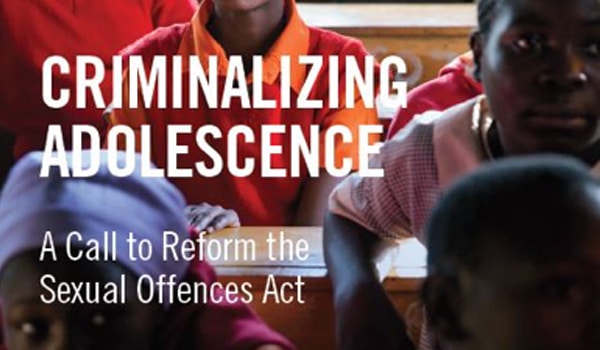
A joint publicationof the Center for Reproductive Rights and the Federation of Women Lawyers,Kenya. Conceptualized by Evelyne Opondo, Senior Regional Director forAfrica, and Lucy Minayo, Capacity Building Manager, CRR Africa.
The Sexual Offences Act (SOA) does not makeany distinction between sex between adolescent minors and sexual acts betweenadolescent minors and adults — all of which are classified and/or have been interpretedas criminal offences. The SOA also does not make any distinction between non-coerciveand non-exploitative and coercive and exploitative sexual conduct betweenminors. The SOA therefore criminalizes non-coercive and non-exploitative sexualconduct among adolescents. Consequently, adolescent males have been imprisonedand, in some cases, have ended up with a permanent criminal record for engagingin consensual sexual conduct with other adolescents.
Criminalization of non-coercive andnon-exploitative sexual conduct among adolescents conflicts with policies onadolescents sexual and reproductive health and creates barriers that make itdifficult for adolescents to effectively access sexual and reproductive healthinformation and services… Health care providers may therefore be apprehensiveabout offering services to adolescent minors without parental authorization.
As recognized by the WHO, “An adolescent’sdecision to go to a health service for sexual health care or advice is likelyto be influenced by whether they will get into trouble with parents orguardians, or even with the law, in places where sexual activity under acertain age… is against the law.”
Criminalization also offends the principle ofthe best interests of the child which can be found in the Constitution, theChildren Act and the CRC. The Committee on the Rights of the Child urges statesto avoid criminalizing adolescents of similar ages for factually consensual andnon-exploitative sexual activity17 and notes that it is inthe children’s best interests to create laws and policies that facilitate theirgrowth and development.
This document calls for changes in law, policyand sexuality education that are in the best interests of adolescents.



